You searched for: Holocaust
<< Previous | Displaying results 1061-1070 of 1164 for "Holocaust" | Next >>
-
Mass Shootings at Babyn Yar (Babi Yar)
ArticleAt Babyn Yar in late September 1941, SS and German police units and their auxiliaries perpetrated one of the largest massacres of World War II.
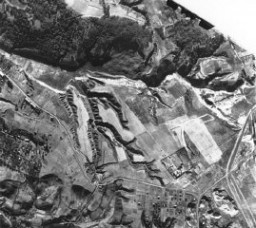
-
Alisa (Lisa) Nussbaum Derman describes joining the Nekama (Revenge) Jewish partisan unit led by Josef Glazman in the Naroch Forest
Oral HistoryLisa was one of three children born to a religious Jewish family. Following the German occupation of her hometown in 1939, Lisa and her family moved first to Augustow and then to Slonim (in Soviet-occupied eastern Poland). German troops captured Slonim in June 1941, during the invasion of the Soviet Union. In Slonim, the Germans established a ghetto which existed from 1941 to 1942. Lisa eventually escaped from Slonim, and went first to Grodno and then to Vilna, where she joined the resistance movement. She…
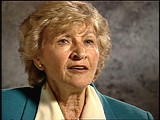
-
Sandor (Shony) Alex Braun describes how music gave him the strength to survive while imprisoned in concentration camps
Oral HistoryShony was born to religious Jewish parents in a small Transylvanian city. He began to learn the violin at age 5. His town was occupied by Hungary in 1940 and by Germany in 1944. In May 1944, he was deported to the Auschwitz camp in Poland. He was transferred to the Natzweiler camp system in France and then to Dachau, where he was liberated by US troops in April 1945. In 1950, he immigrated to the United States, and became a composer and a professional violinist.
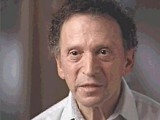
-
Ruth Berkowicz Segal describes deciding to leave Warsaw shortly after the outbreak of war
Oral HistoryWhen German forces invaded Poland in September 1939, Ruth's father fled to eastern Poland. Upon the Soviet occupation of eastern Poland, he fled to Lithuania. Ruth left Warsaw with two friends to find her father and later joined him in Vilna. After Soviet forces occupied Lithuania, Ruth and her father obtained transit visas for Japan, but only Ruth obtained a Soviet exit visa. Her father insisted she leave and not wait for him. Ruth traveled by the Trans-Siberian Railroad across the Soviet Union to…
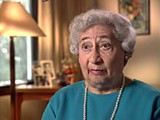
-
Gary Bigus describes Berlin during the 1936 Olympics
Oral HistoryGary (Gerhard) was born in Berlin, Germany, in 1924. His father owned a men’s clothing store. As a child, Gary faced antisemitism from his peers. His family’s store was boycotted several times, and ultimately destroyed in 1938 during Kristallnacht. As the city prepared for tourists to arrive in Berlin for the 1936 Olympics, Gary noticed anti-Jewish signs vanish from storefronts. In 1939, Gary and his parents escaped Germany after securing passage to Shanghai, China. His father died of illness in…
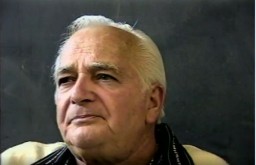
-
Leon Bass describes his experience as a Black soldier
Oral HistoryLeon Bass was born in Philadelphia, PA in 1925. He joined the US Army in 1943 and served as a member of the all-Black 183rd Engineer Combat Battalion attached to General Patton's Third Army. Leon's unit was involved in the Battle of the Bulge as well as the liberation of Buchenwald. After the war, Leon went on to receive his doctorate, teach, and speak about the Holocaust and racism. In this interview, Leon describes the his frustration with the discord between the United State's condemnation of Nazi…
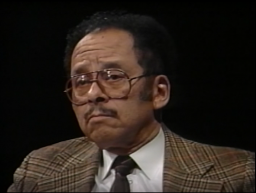
-
Leon Bass describes his wartime experiences
Oral HistoryLeon Bass was born in Philadelphia, PA in 1925. He joined the US Army in 1943 and served as a member of the all-Black 183rd Engineer Combat Battalion attached to General Patton's Third Army. Leon's unit was involved in the Battle of the Bulge as well as the liberation of Buchenwald. After the war, Leon went on to receive his doctorate, teach, and speak about the Holocaust and racism. In this interview, Leon describes his first experiences with the realities of war and death. He reflects upon his…
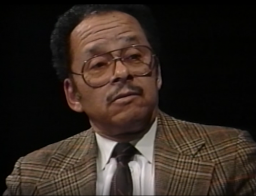
-
Leon Bass describes his feelings about joining the US Army
Oral HistoryLeon Bass was born in Philadelphia, PA in 1925. He joined the US Army in 1943 and served as a member of the all-Black 183rd Engineer Combat Battalion attached to General Patton's Third Army. Leon's unit was involved in the Battle of the Bulge as well as the liberation of Buchenwald. After the war, Leon went on to receive his doctorate, teach, and speak about the Holocaust and racism. In this interview, Leon describes the racism and segregation he faced in the United States during the 1940s and how it…
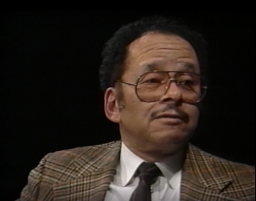
-
Immediate American Responses to the Nazi Book Burnings
ArticleThe Nazi book burnings of 1933 sparked responses from anti-Fascist organizations, Jewish groups, and writers in the United States. Learn more.
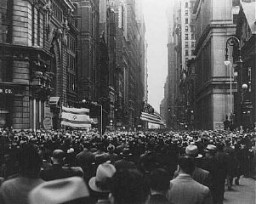
-
Hainewalde
ArticleThe SA established a protective custody camp at Hainewalde in March 1933. Well-known journalist and writer Axel Eggebrecht was among its early prisoners.
